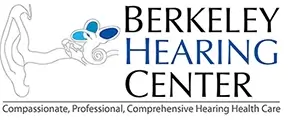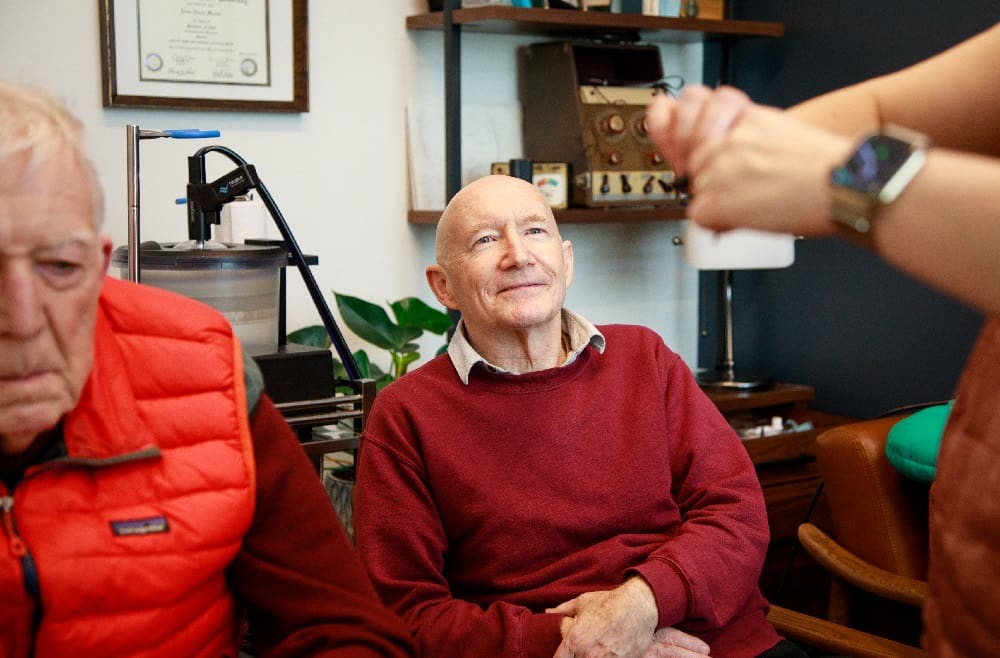2021-03-27
Jonathan Lipschutz Audiologist, M.S., F-AAA, Co-Owner
Recently, I read an article by Julie Jargon of the Wall Street Journal (“Hearing Aids, iPhone Apps and New Tech Mean More Ways to Deal With Hearing Loss—But Same Old Anxiety”) that’s obstensibly about new technology available to help people with hearing loss, particularly through the upcoming implementation of the “Over-the-Counter (OTC) Hearing Aid Act''. It touches on a number of topics that I’ve written about more in depth in the past--stigma of hearing loss, OTC hearing aids and of course the intersection of hearing aids & technology.
It's well written, but like practically all other media articles about addressing hearing loss, it focuses only on the technological aspects of hearing healthcare. It only tangentially or indirectly nods to the critical importance of the hearing healthcare provider. Granted, Julie’s the “Family & Tech'' columnist, and I know she’s truly trying to correctly inform her readers. But it’s a disservice to them when she leaves out the critical role audiologists play in proper hearing healthcare. As she correctly states in the title (“...Same Old Anxiety.”), this is about hearing loss, a medical issue with a strong emotional component and potentially significant long term health ramifications. Technology, whether simple OTC devices or sophisticated programmable prosthetics dispensed by an audiologist, are only tools to treat hearing loss.
As someone who treats people with hearing loss every day, I know how much of a difference the care we provide makes in the lives of our patients. Whether it’s the comprehensive testing & counseling regarding results, programming/fitting and detailed instruction on use and care of their hearing aids to the ongoing/timely support, our patients routinely testify how the care we provide is indispensable and critical to their ongoing success staying connected with their world. Just because someone buys a hearing aid, doesn’t mean that they’ve received good hearing healthcare (or any hearing healthcare for that matter). In fact, I counsel my patients that what they are really investing in is me. The hearing aids are just a component of the care I provide. But especially, when it comes to hearing aids, the difference an experienced, knowledgable and caring audiologist utlizing best practices makes is profound.
Hearing aids don’t correctly program themselves for how each specific patient subjectively hears! There’s no substitute for the in-person programming and in-situ acoustic verification of hearing aids. No substitute for the in-person audiological education, counseling, instruction/practice and ongoing support that enables patients to consistently get the maximum short & long term benefits properly fit amplification provides. One can buy “cheaper” hearing aids, but what they’re really buying is cheap hearing healthcare. I hear it all the time from patients who’ve made that mistake and are now under my care. Nobody ever informed them. That’s why I take issue with these articles that only talk about technology, when the most important component of the best hearing healthcare is the audiologist. I know of no other medical field where the tools used by the provider to treat their patients are considered more important than the medical professional themself!
Coming from someone who makes a living ‘selling hearing aids to people’, some might think, “He’s just worried about the advent of ‘hearables’ & OTC hearing aids.” In fact, as a dedicated audiologist, anything that raises awareness of hearing loss and the importance & benefits of early consistent treatment is a tremendous accomplishment. As Julie noted in her article, it takes 5-7 years for people with hearing loss to seek help and begin treatment with amplification. Just as alaming though, approximately ⅔ of people with treatable hearing loss don’t use hearing aids! Bringing down the time of identification-to-treatment and increasing uptake of that treatment is our ulitmate goal.
In addition, OTC hearing aids are going to be subject to the same user related issues professionally dispensed hearing aids are subject to...which we address with our patients every day. Though many folks will be able to effectively use these devices without our assistance, many others will not.
And who better to assist with those issues than the professionals specifically trained to treat hearing loss?! Lastly, OTC hearing aids will only be designed to treat folks with mild to moderate hearing loss, which accounts for a relatively small portion of the patients we see. But even they wisely choose to consult a professional who can educate and inform them about treatment options and support them going forward if desired.
With the finish line in sight, please continue to love your community by continuing to mask, socially distance, wash/sanitize hands and get vaccinated when you're eligible. Please also continue supporting your local businesses!
https://berkeleyhearing.com/wp-content/uploads/2024/10/Consult-an-audiologist-today-to-experience-the-full-benefits-of-expert-hearing-healthcare.jpg
Jonathan Lipschutz Audiologist, M.S., F-AAA, Co-Owner






